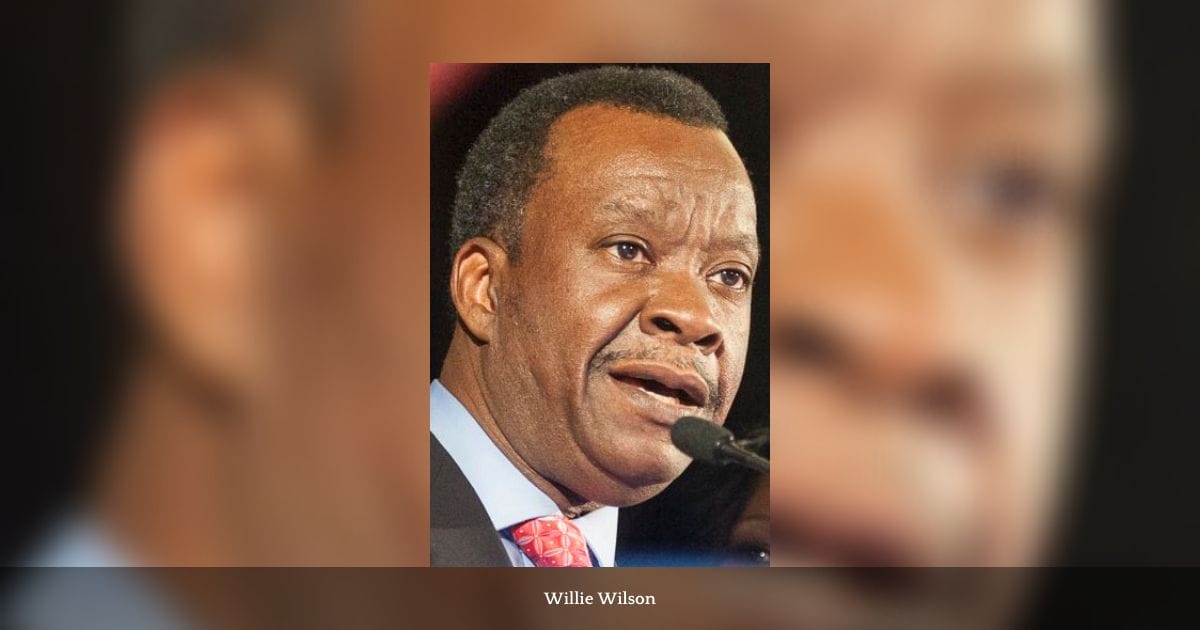Upset with the Chicago Board of Election Commissioners for revealing a new map of polling places 30 days before the November 8 election and the agency’s alleged violation of the Help America Vote Act of 2002—requiring voting facilities must be accessible for the disabled—mayoral hopeful Dr. Willie Wilson on Wednesday, October 12, appealed to the U.S. Justice Department to intervene and protect the rights of voters.
In a letter dated October 12, 2022, to U.S. Attorney General Merrick Garland, Wilson wrote, “As a son of a sharecropper from Louisiana, the Jim Crow South, I know what it is like to be denied access to the ballot box.
“In fact, I am the first person in my family to vote. Unjust laws were set up to deny Blacks, women, and others the right to vote. These barriers were outlawed by the Voting Rights Act of 1965,” Wilson stated.
“A cornerstone of democracy is voting. Too many people have died, marched and were beaten for us to have the right to vote. Disenfranchisement is not just taking place in the south. It is happening right here in Chicago.”
Wilson said the Board announced its plan last summer to reduce the number of precincts in Chicago from 2,069 to 1,290, a 40 percent reduction.
“The Board indicated this consolidation plan of polling stations was done with the consent of the alderpersons and to save $2 million,” Wilson said.
According to Wilson, on October 4, the Board released its final list of consolidated polling stations. The list eliminated polling stations. Wilson believes that half of the city’s voters will be heading to different polling places than they voted in during the primary election.
“I know closing polling places hurts democracy,” said Wilson.
He said the Board’s consolidation plan also violates the Americans with Disabilities Act of 1990 (ADA) and a 2017 settlement agreement with the Department of Justice. Wilson said according to the law, “voting must be accessible for individuals with disabilities.”
According to Wilson, “each polling place has at least one accessible voting system in federal elections.” Pointing at the Board’s list of polling places, Wilson said 14 of the 50 wards have no accessibility for people with disabilities.
He then pointed out those wards that have no access for the disabled. They are 6th, 12th, 13th, 14th, 16th, 17th, 19th, 22nd, 24th, 28th, 32nd, 37th, 38th and 50th. According to Wilson, in several wards, there is only one polling station that provides accessibility to those with disabilities.
Wilson quoted the Chicago Tribune that only 9 percent of polling places are ADA compliant, which is reportedly down from 20 percent in the primary election.
“Can you imagine using a wheelchair or walker and not being able to enter your polling place because there was no ramp. The doors were too narrow, hard to open and lacked automatic openers or pathways to the voting area, which was obstructed and lacked proper signage?”
Wilson quoted the Board’s position on providing the disabled with adequate passageway to polling places.
“Accessible polling places at accessible sites are and shall be the cornerstone of the Board’s voting accessibility program. The Board has an obligation to provide an accessible voting program under federal law, including a program that is accessible to persons with mobility disabilities and persons who are blind or have other vision disabilities. 42 U.S.C. § 12132.
“The Board’s Title-II obligations require it to select facilities to be used as polling places that do not exclude individuals with disabilities from or deny them the benefits of the polling place, or otherwise subject them to discrimination, 28 C.F.R. § 35.130(b)(4); and to administer its voting program in the most integrated setting appropriate to the needs of persons with disabilities, 28 C.F.R. § 35.130(d).”






